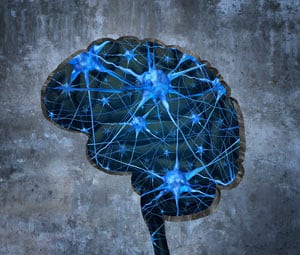How to Reduce Memory Loss as You Age – Ways to Age Proof Your Brain
by Erika Slater
Memory loss, being forgetful, and the frustrating inability to recall quickly things you know you know, but just can’t remember, are all symptoms we associate with aging.
And it’s true as we get older it does seem as if we lose some of that memory retention and quick recall we had, and needed, when we were younger learning rote things so we could pass an exam.
We can all do things to improve our memories and the fact is you should start now to not only reduce your risk of brain disease in the future, but pave the way for retaining a healthy capacity to retain knowledge and details of past events.
While you may not want to make a career out of being a memory powerhouse and take to the stage to amaze people with your powers of recall, nonetheless those same techniques professional memory artists use can be adapted to help with your own memory recall and we’ll discuss those later.
But it isn’t all about tricks and techniques as you’ll see, but it starts with your brain and understanding what’s going on to retain and recall our memories.
Prepare to be amazed.
THE AGING PROCESS AND OUR BRAIN AND MEMORIES:

Long-term memory is where we store what we want to retain. Most people think a memory is stored in one place but science tells us otherwise.
Depending on the memory it can be dispersed in multiple places in our brain that each deal with the sound, sights, emotions, and other elements of the memory.
While it may be dispersed, the elements are all linked We also know the more detail we notice and store away the more they will endure in our memories.
This explains why what we focus on is better retained in our memory. If you can’t focus then you can’t retain information. Of course, you knew that, didn’t you?
As you age you have to deliberately focus because your sight or hearing may be impaired so remembering the name of somebody, or what they’re telling you, in a crowded place, may be difficult because there’s noise and distractions and you can’t focus as easily.
Emotional elements of a memory are powerful because we think it gets us to notice the detail to store. These can be both negative and positive emotions.
Your memory is also impacted by stress, fatigue, medications, sleep quality, hearing and vision impairment, and a big one is depression.
Depression can be detrimental to not only your memories but overall health and force a negative pattern of overload on sad memories that send you into a spiral. This can happen at any age and shouldn’t be left unchecked. Professional help should be sought if you feel depressed for an extended period of time.
As we’ve touched the more concerning topic of depression it’s the right time to cover the equally concerning discussion of Dementia and Alzheimer’s.
A WORD ABOUT SIGNIFICANT MEMORY LOSS:

The fact is there are usually clear signs if Dementia is present, and memory loss is just one symptom, and it has to be significant and concerning to others.
Forgetting the name of somebody you haven’t seen for years, or where you put your phone or car keys doesn’t mean you have Dementia – I beg you not to talk to my family as they’ll try and convince you otherwise about me!
Dementia is a general category describing a wide range of symptoms, whereas Alzheimer’s is a common type of Dementia. Just because you have memory loss doesn’t mean you’ve got Dementia. According to the Alzheimer’s Association to receive a diagnosis of Dementia you must have significant impairment of one of the following:
1. Memory
2. Communication language
3. Ability to focus and pay attention
4. Reasoning and judgement
5. Visual perception
Please note (my) emphasis on significant impairment. If you, or somebody who knows you well, is concerned about your memory loss then get to your Doctor to be tested. There are other disease’s that can cause significant memory loss unrelated to a brain disease, such a thyroid problem that can interfere with memory. Medications you take can also impact memory ability.
While the threat, as you age, to develop Dementia exists, there are things you can do now to reduce your risk and also stagnate memory loss and improve your memory, and this is the focus of the next section.
WAYS TO IMPROVE YOUR MEMORY AND AGE PROOF YOUR BRAIN:

Keeping alive and kicking is one of the secrets to keeping your memory wheels greased as you age. But what the heck does that means, and is it true?
Turns out there’s a lot of studies and science behind it, so it’s true. But let’s address what it means now.
If your favorite pastime is laying on the couch watching reruns of TV shows where most of the actors are now dead then you’re not going to like this section. A sedentary lifestyle isn’t going to help improve your memory or enrich your life except if you end up on jeopardy with questions about your favorite TV shows and win the jackpot! If you do then let me know and I’ll help you celebrate.
Now I like a good TV show as much as anybody – Big Bang Theory still makes me laugh – but I also know what is better for the brain is a thirst for new knowledge and regular exercise and good fuel for my body and brain.
Challenging your mind to absorb new knowledge and learning new skills not only enriches your life but stimulates the brain and has neurons doing a happy dance in your brain. Reading, writing, playing a musical instrument and even pottering around the garden keeps those connections in your memory all firing and reinforcing what you’ve already remembered.
Scientists also advocate challenging your brain in entirely new ways by learning a new musical instrument or language. It seems you can teach an “old dog new tricks” and in fact it’s better for the dog – or you in this case.

It’s been known for a while maintaining a high-level of stress can consume your thoughts and place a strain on your wellness, and impair your memory.
Stress releases cortisol which in high enough levels for long periods erodes vital structures required for your memory. So, when you manage and reduce stress you free up your thoughts and memory for absorbing new information.
Sleep disorders such as insomnia and sleep apnea can severely impact our mental abilities. Not getting a good night’s sleep – and let’s for sake of arguments agree this is at least 6/7 hours a night – means we’re not “firing on all cylinders” and constantly tired. While I understand kids in college can pull all-nighters when cramming for an exam and remember stuff, as we age we just can’t do that any longer, and it’s debatable as to whether this is the best way to memorize information long-term anyway – can you remember the facts you learnt for any college exam? Neither can I.
Additionally, many medications for sleep conditions impair memory and cognitive functions. The experts agree you need to stick to a consistent sleep schedule and routine to avoid erosion of your memory.

I’m not a Nutritionist or Dietitian but know when it comes to weight and diets there’s a lot more going on than choosing the latest flavor of what everybody is doing. Solving weight issues is complicated – it’s one of the services I offer – and for most it’s never as easy as calorie counting.
Many weight issues are emotional and it’s just too easy to say eat salads and nuts and stuff and expect it to take.
It won’t. Resolving emotional issues tied to eating habits should be addressed separately to ensure a healthy diet sticks.
Eating a diet of fruits and vegetables and getting enough protein to stay at your ideal weight is a sound guideline. Keep sugar and processed foods out of your diet as much as you can to reduce chance of diabetes, high cholesterol and high blood pressure. These are all conditions that can affect your memory and cognitive thinking.
To finish up on the health track items it goes without saying if you smoke… consider quitting any tobacco use or recreational drugs. If you do everything else in this section but still pump poisons into your body then you’re undoing all the good stuff. Smoking puts you at a higher risk for many health issues that includes Dementia, heart disease, high blood pressure all of which severely impair memory.
A final point here concerns not being afraid to ask for help in capturing information to your memory.

We also may not store the level of detail as a child or teenager would unless we pause and spend time taking it all in. If its information rather than an event we want to remember then we can re-read a passage or even watch a video multiple times. But capturing an event to our memory is not so easy as we can’t rewind and press play again if we miss some information, so we may need to seek the help of others to recall detail for us so we can store it.
Ask people to repeat for you, or slow them down if you miss something.
People can talk fast – yes, guilty as well here – and so subtle information or key points can be missed. If it’s not convenient to get something repeated then repeat what you think you heard to a friend who’s there, and ask them to confirm or fill in missing pieces for you.
If it makes the difference in capturing an important memory to you then “feeling dumb for five seconds is much better than feeling dumb for the rest of your life.” Not sure who said that originally but it’s so right.
ADDITIONAL TECHNIQUES TO ENHANCE DAY TO DAY MEMORY:

Don’t be afraid of using electronic organizing tools as your “secondary” memory. Your PC, Laptop, Mac or Smartphones comes with a boatload of apps you can use to avoid loading up your brain memory with “stuff.” There are a few definitions of “stuff” but for this purpose I’ll use this one “Systems to Uncover Facts Fast.”
In this category, I’ll place calendars so you don’t miss your grand-kids birthdays or your anniversary, or an appointment with the doctor, and an address book for all those aunts and uncles who keep moving. I still don’t have set to memory my sisters address. You get the drift.
Here we drift into techniques used by memory genesis’s. These are association techniques and there are lots but I’ll focus on three.
Association is about relating the unfamiliar with something familiar or easy to remember. Remembering names and passwords is a common use so associate the password with your own “code” mnemonics. Names can be associated with rhymes, etc. Chunking is another technique used for similar uses especially long digit numbers. Chunk the number into groups much like a telephone number is chunked. This means you’re not trying to memorize a long string of digits all at once but instead as blocks.
For more complicated sequences, and this is a common technique used by memory giants and speakers, use a technique called Loci Method. This helps complicated memorization by associating something like a speech to recite, with rooms in a familiar house. As you practice the memorization you drop triggers onto an object in a room as you walk through the house using a route you’ll easily remember. As you recite you walk back through the house in same order and the objects you “see” will trigger the next point or passage to recite. It takes practice for sure but saves attempting to put everything to memory.
Psychiatrist Gary Small has a book on memory techniques called “The Memory Bible: An Innovation Strategy For Keeping Your Brain Young” and there’s a link in the resource section below.
If you want to be able to recall in detail happy memories in your life then you’ll love the next section…
HOW TO RECALL THE GOOD MEMORIES THROUGH REVIVIFICATION:

It may surprise you to learn you remember bad experiences better than positive ones. This selective retention is genetically coded into you.
You see our early ancestors had to deal with survival decisions every day. Eat or be eaten.
So, when it came to making a mistake that put you in harm’s way, well you retained that mistake and the consequences easily to ensure you didn’t make it again – assuming you got the chance!
So, if you think negative memories are easier to recall than positive ones for you, you’re probably right, but not necessarily because you’re a pessimist. It’s a protection mechanism for you so you don’t repeat them. Not to touch a wood stove when its burning logs only needs one incident!
So, if we can recall bad memories so easily what can we do to keep the happy and positive memories close enough to the “surface” to remember those occasions as easily.
It turns out one of the secrets is lingering on them.
Take any good memory you have, maybe there’s a recurring one, and dwell on it. Recall it and discuss it with a friend. Not at a superficial level in order to move onto a different topic but because it makes you smile, and describe the thing about the memory that makes it so positive for you.
As you dwell you’ll begin to remember detail and may even use hand gestures in describing it as you take yourself back to the scene. Ask your friend to stop you and ask questions as you recall the memory so they can experience and understand your sense, pleasure and feelings around it.
This will force you to repeat and dig deeper to reinforce the memory, and of course… to dwell.
Don’t rush this though. Realize this is a key to making those positive memories as easy to recall as the negative ones. You’re literally “rewiring your brain.”
For more information about my programs where I help people, especially seniors, recall positive memories and help grow and expand the entire memory of the brain – I call it Age Proofing the Brain – then check out my Hypnosis Services here or contact me here about my memory age proofing sessions >>>.
The fact is as we age we can expect some memory loss and this is normal but there are ways to combat this loss, and the sooner you start adopting the ways we’ve discussed here the sooner you’ll notice improvement in your memory.
ADDITIONAL RESOURCES RELATED TO MEMORY LOSS:
What is Dementia – Alzheimer’s Association >>>
National Institute of Mental Health – NIMH >>>
National Institute on Aging >>>
Insomnia – Why You Can’t Sleep and What to Do About It >>>
The Memory Bible: An Innovative Strategy For Keeping Your Brain Young – Gary Small >>> (not an affiliate link)
Improving Memory – Understanding Age-Related Memory Loss – Harvard Health Publication >>> (not an affiliate link)
Confronting the Negativity Bias – Dr. Rick Hanson >>>
Library of Self-Hypnosis Downloads Products >>>
Erika Slater CH
Free At Last Hypnosis
Massachusetts
CATEGORIES
FEATURED POSTS
Interested in making a significant change in your life and interested in learning more about what I do and how I do it? Discover my hypnotherapy services here or contact me here.

DISCOVER HOW TO START CHANGING HABITS TODAY.
In this free audio hypnosis session, you’ll experience the power of your subconscious mind to begin to change your habits. If you've never experienced hypnosis before then this is a great introduction...


